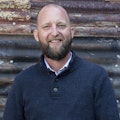How to Lead with Confidence and Be More Influential in the Flux Era (BOMA 2024)
“What is wrong with people?”
That was the attention-grabbing question keynote speaker, Dr. Amy Cuddy, social psychologist, New York Times bestselling author, award-winning scholar and lecturer, posed to attendees at the opening of Tuesday morning’s keynote presentation at the 2024 BOMA International Conference and Expo in Philadelphia. It’s a question Cuddy has been getting with increasing frequency from clients because—let’s face it—communication is challenging.
That’s always been the case, of course, but as the pandemic forced people into isolation and as mental health issues have come to the forefront, it’s more challenging than ever, she said. Cuddy then asked the audience to ask themselves yet another difficult question: What is the challenge at work that you approach with the most dread, expect with anxiety or leave with regret? The answer is different for each person (public speaking or pitching clients, for example), but the underlying cause is the same: you are not present, he suggested.
“Why is it so hard for us to be present?” Cuddy mused. “We’re very bad at talking to ourselves, especially when we are anxious and powerless."
The Power Paradox
“When people hear the word ‘power,’ they associate it with corruption,” Cuddy explained. That’s because most people associate power with what’s called Social Power and can be characterized as a “power-over” dynamic in which one person has the ability to control others’ state of mind and behaviors. “It’s a zero-sum game,” she noted.
Contrast that with Personal Power, which gives us control over our own states, behaviors and outcomes. “It’s a sense of having agency over our own lives,” Cuddy said and it activates the approach system—an “all-is-safe” system. Whereas powerlessness activates the inhibition system that is alarm-threat based, like the Fight, Flight or Freeze response.
“If you know you have little power, you don’t have high subjective wellbeing,” Cuddy said. “Power affects us all the time. Power makes us feel safe; powerlessness makes us feel threatened.”
Comparing these systems side-by-side, Cuddy explained that the approach system makes us feel:
- Trust (vs. distrust)
- Opportunity (vs. threats)
- Allies (vs. predators)
- Abundance (vs. scarcity)
- Secure (vs. defensive)
- Action (vs. inaction)
The Power of Presence
“When we feel personally powerful, not only do we show up, we show up as strong and generous, as competent and trustworthy,” she said. In other words, we are fully present—a state of being that is sorely deficient in most organizations today. People are disconnected, distracted and often depressed, which leads to inactivity and lost productivity.
Cuddy said people who are present have been shown to:
- Perform better
- Feel better—before, during and after
- Liberate others to be present
- Earn trust
- Convince others
- Build stronger relationships
“Presence also begets presence,” Cuddy noted, adding that when people are present with each other, they see each other and earn trust that can be built upon. “Trust is the conduit of influence,” she said. “It is the medium through which ideas travel.”
The Flux Era
Cuddy explained how the power dynamic changed throughout the pandemic and during any social, political, environmental or economic challenges. She describe the phenomenon as “depleted surge capacity.” During these demanding periods, there are three psychological phases people experience during large-scale crises:
- Emergency. When threats feel urgent, objectives come into focus, energy is high and goals are shared. Teams tend to thrive (mostly on adrenaline), and good leaders operate at their best, Cuddy said.
- Regression. At some point, uncertainty begins to creep in about goals or the nature of the threat. People feel a loss of control, social disconnectedness, a lack of urgency or a lost sense of purpose. Other common symptoms include exhaustion, depression, anxiety, irritability, loss of productivity and withdrawal. Obviously, leaders and teams struggle through this phase—where many of us find ourselves with today’s uncertainties.
- Rebuilding. During this phase, people tend to have a paralysis to action and experience the acceptance phase of grief. The future comes into clearer focus as new goals and objectives emerge and roles change. People can reconnect and reenergize as teams shift or reunite, which often sparks creativity.
Cuddy said we are currently in what she calls “The Flux Era,” a period in which it’s unclear if things will return to how it was before—a perfect description of the CRE industry today.
“We’re adapting to a new level of flux, figuring out how to exist in a liminal state, occupying both sides of this moving threshold between “threatened” and “safe.”
The Physical Nature of Power
Given the uncertainties CRE professionals face today, Dr. Cuddy said “we must recover our power in order to cope.” How? Using the power of the mind and body, which she said are constantly talking to each other.
Through a series of photos and illustrations, Cuddy demonstrated how significantly our body postures can influence our mental states. All throughout nature, animals make themselves larger when they feel threatened to fend off predators. On the other hand, if they are weak, their postures reflect as well. The same is true of human beings, she said. Just look at the body postures of athletes who have experienced victory (hands raised in a V pose) or loss (hanging heads or hiding their faces).
“When we feel powerful, we expand. When we feel powerless, we make ourselves smaller (physically),” Cuddy observed. “Can we reverse engineer the process?”
As it turns out, we can. Offering attendees various tips and exercises from deep breathing techniques, slowing our speech, both simple (standing up straight) and complex body postures (yoga poses) and regular movement such as walking, people can regain a sense of personal power, feel more confident, trusting, relaxed and happy.
Dr. Cuddy ended the inspiring session with a quote from Dr. Maya Angelou, who said: “Stand up straight and realize who you are, that you tower over your circumstances. Stand up straight.”

